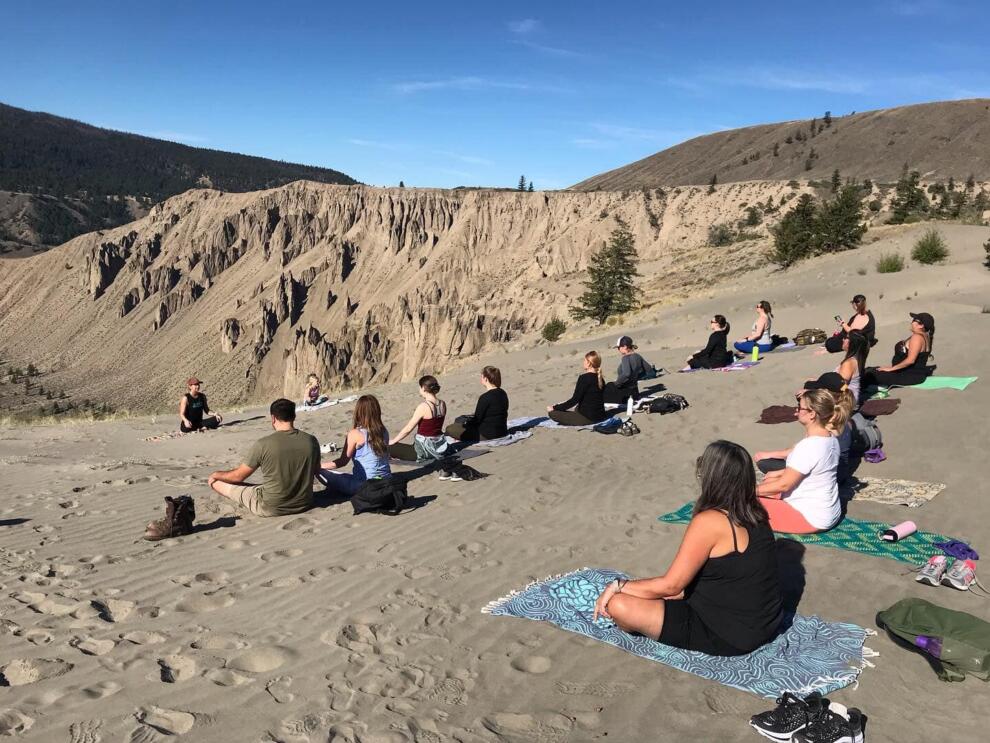Winter Blues and Mental Health Wellness
Congratulations, we’ve all just survived the saddest day of the year. The third Monday in January has come to be known as “Blue Monday,” and it’s now behind us. By that third week of January, the joy and celebratory indulgence of the holiday season is a distant memory. All we’re left with now is a credit card bill, tighter jeans and, in the Northern Hemisphere, a never-ending stretch of short, wet, cold days. “This is hibernation season,” says Kari Fitzgerald, LCPC, ERYT, Clinical Director at Birchwood Wellness Group. “The lack of motivation experienced through the January and February winter months should be its own designation. The bears have it right.”
There’s a lot of pressure in January to set goals, pick back up your fitness routine, abstain from alcohol, open a savings account, and embrace a ‘new year, new me’ persona. But it’s challenging to set goals by an arbitrary flip of the calendar page, especially when you’re feeling uninspired. “The pressure to set resolutions and improve yourself in the new year stems from societal expectations and the symbolic significance of a fresh start,” shares Christina Faedo RPC-C, RTCc, Founder and Clinical Director at Pierpoint Counseling. “These positive intentions can also set people up for disappointment. The new year is a time to be gentle with yourself.”
Here are some self-care tips to look after your mental health until spring heats up.
- Feel Your Feelings: The pressure we put on ourselves to transform on January 1 is unrealistic. If you’re feeling lethargic or unmotivated after the holidays, go easy on yourself. Get curious about what you’re feeling and why.
- Take a Walk Outside: Getting outside and moving your body are both proven to improve mental health. Especially in darker times of the year, ensuring your body sees the sun and gets even a smidge of natural vitamin D is good for you. Going for a walk will increase blood flow and blood circulation to the brain and body, boosting your mood.
- Drink Some Water: Hydration is a wonderful gift to give yourself. Drinking water decreases risks of depression and anxiety. It supports concentration and focus, stabilizing your mood. Being hydrated also supports healthier eating habits.
- Spend Time Sleeping: Getting a good night’s sleep is important for both physical and mental health. If you suffer from anxiety, bipolar, depression, schizophrenia, or other mental health conditions, poor or lack of sleep makes symptoms worse. Going to bed at roughly the same time every night and getting a minimum of seven hours sleep for adults gives your body the best opportunity to improve mental wellness.
- Stay connected: After the holidays some of us are craving the alone time while others mourn the end of a social season. Regardless of your desire to get dressed and leave the house in winter months, having friendships and connecting with people you care about is good for your mental health. Conversations with friends reduce loneliness, boost your happiness and reduce stress. Even if you don’t want to get out of your pj’s and meet for a coffee, pick up the phone or send that text.
“My advice to clients facing the winter blues is to find activities that bring joy, like engaging in hobbies, spending time with friends or loved ones, and getting outdoors when possible,” says Faedo. “Establish a routine, prioritize self-care, and consider talking to someone about your feelings. It’s a tough time of year, so again… take care and be gentle on yourself.”
“I suggest taking this time to ask yourself what you really need emotionally, physically, spiritually, financially,” continues Fitzgerald. “Not want – but NEED.”
The good news is, spring and even summer are coming. We’ve only got a few weeks before the sun is setting after dinner time and temperatures are heating up. In the meantime, let’s give ourselves compassion and permission to start the year slowly, imperfectly and possibly without changes from the year before. If being gentle and prioritizing self care isn’t easing the winter blues, it’s important to seek professional support.
HOW YOU CAN CREATE IMPACT:

Find someone to talk to. If you’re feeling down, making time with a counselor provides resources and directs you towards better mental health.

Add Vitamin D. Whether it’s a supplement, a vitamin D lamp or a road trip to somewhere warmer, getting enough Vitamin D is a way to manage the winter blues

Make self care a daily priority. Taking time and making space to work on your mental health will pay off in the long run.








